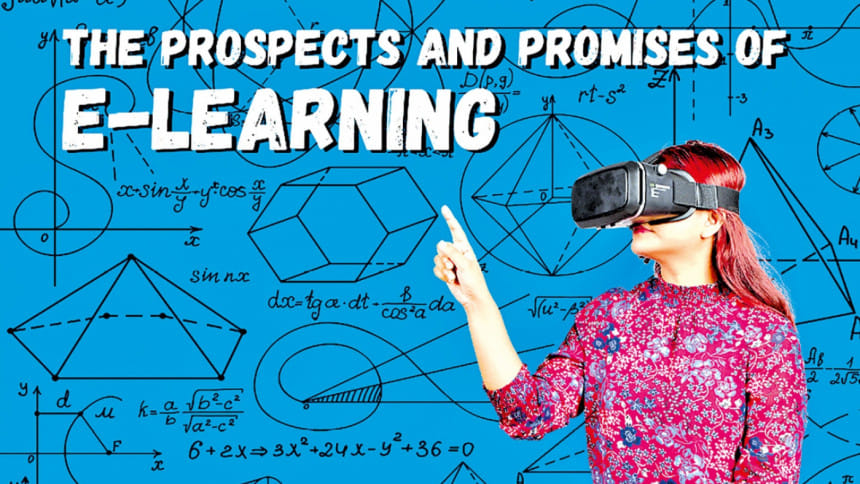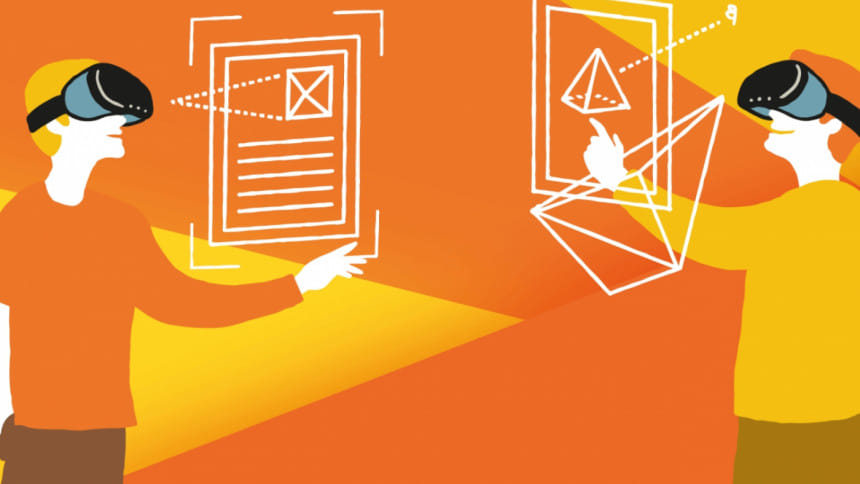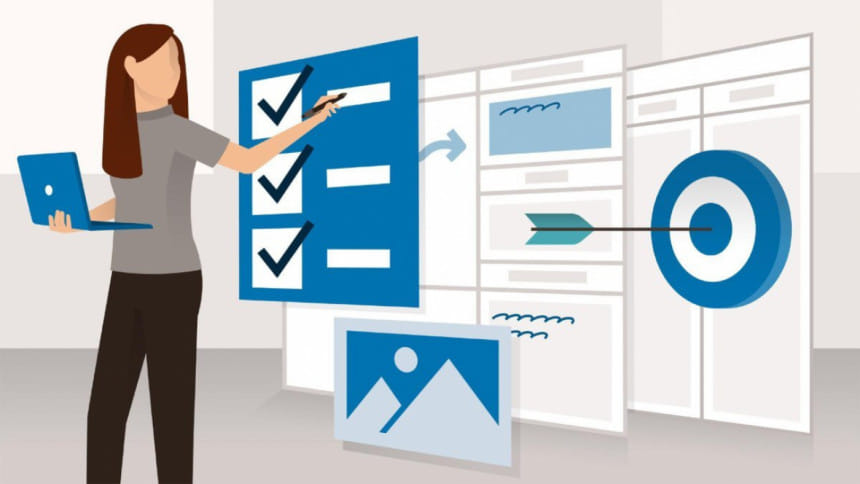The Prospects and Promises of E-learning

Technological advancement is ensuring convenience for us in almost every step of our lives, starting with online shopping, ride-sharing services, and of course, food order and delivery. To kick things up a notch, technology has now made its place into the world of education in what we call "e-learning".

E-learning, or electronic learning, is a way for students to educate themselves, usually by using the internet. It acts as a platform that connects teachers and students from all across the globe. It can also work as a resource that complements the topics children learn about in school.

E-learning is still quite new to the Bangladeshi educational scene but with more and more people connected to the internet, it is quickly becoming a crucial part of learning. However, the introduction of e-learning would mean many would have to change their conventional ways of learning. Would all that change be worthwhile? Let's look at how e-learning is different from traditional learning methods.
Although e-learning has been a blessing for most, there are a few factors that make people choose conventional means of learning over e-learning. Even so, we must remember that school isn't as accessible to the children of the remote locations in Bangladesh, as it is to the children of major cities and towns. Razi Uddin Ahmed, Director at TutorsInc, a new, up-and-coming e-learning organisation, shared his story with us, saying, "When we were young, many a times we had to travel across the city in order to get the help we needed. We're trying to make education accessible to those who can't do that. We're trying to bring education to them instead of them having to chase it down."

But what is it that makes such organisations stand out? What can they offer that traditional schools cannot? Jahanara Akhter, Education Coordinator at JAAGO Foundation, explains, "This not only educates them but also modernises them, as they learn how to use technology."
As technology grows and evolves, we have to ensure the children are evolving with it. They need to be accustomed to the idea of working with technology, especially in this modern world where most tasks, starting from careers to daily activities require them to be adequately trained in the technological fields.
When asked whether e-learning organisations could someday replace conventional learning, one of the teachers at TutorsInc, Sharar Galeeb Chowdhury, says, "For remote areas, e-learning is definitely the future, where the infrastructure to host full-fledged institutions have not yet reached."
Although, a holistic education isn't one that only teaches you how to read or do math but one that teaches you many other important skills you may need in life. In school, children learn how to interact with one another and how they can peacefully and efficiently work together. These are all vital lessons that they will definitely need in a working environment.
Tasneem Batool, teacher at TutorsInc, says, "If they're only learning through e-learning, they may end up having a lack of discipline and missing out on learning other important skills such as communication and social skills."

The best conclusion we can come to is to have a good balance between e-learning and conventional learning. When you think about it, they both complement each other. E-learning institutes can aid and embed children as they require help whenever they need, and the traditional schooling will teach them how to live in a society and work with others, while honing their extracurricular skills too.
Running an e-learning organisation comes with its own set of challenges. Building a website, creating regular and quality content, gathering teachers and reaching out to children is all a ton of work.
Here in Bangladesh, it has become somewhat of a norm for children to spend approximately six hours at school, after which most of them have to seek out help, be it from tutors, coaching centres, or burying themselves in books and assignment.
Mahmudul Hasan, one of the two the directors at TutorsInc says, "It has become culture here for children to ask for extra help. So getting used to the idea of being able to study by yourself only with the help of the internet may take some time."
What concerns them most is how to gain the trust of the public, as Adib Ahnaf Aroz, Operations Manager at TutorsInc mentions, "The mentality of the society isn't fully on board with the idea of learning over the internet."

Instilling trust in the society is something that will understandably take time. The initial response to any sort of change naturally invokes fear—a very human reaction. As Russel Ahmed, Founder and CEO of Champs21.com comments, "There is definitely a significant lack of awareness and fear of the unknown regarding the internet amongst teachers and parents."
When it comes to society, Ishrat Tanzil, Education Coordinator at JAAGO Foundation, talked about how difficult it can get to convince those in the rural areas to send their children for higher studies. Mentalities vary place to place and person to person; some people choose the path of livelihood over proper education. "It can be quite the challenge introducing the idea and concept of education in such places at first. But it's part of the job," says Ishrat.
In between being able to gain the trust of the parents and students, there is a gaping hole in the industry for good teachers. What makes a teacher "good"? It is when their goal isn't to make children memorise just so they can jot things down on their exam papers, but those that focus on building the concepts for the children, teaching them in a way that'll make sure they never forget it. An educated person not only knows the theories but knows how to apply them in real life. And a good teacher helps you do exactly that.
Apart from all that, turns out there's a very basic problem these organisations have to face with services as simple as the internet. Since their operation is based on this, you can surely understand how scary it must be when the internet is not responding.

Now that e-learning has come and nestled into our education to some extent, what could be the future of this much needed endeavour? Our country is headed towards more digitalisation so it makes sense to equip the children of today with the knowledge required to adapt to this new era. Russell Ahmed, Founder and CEO of Champs21.com, agreed to this when talking about starting Champs21.com, saying, "That verdict [of starting Champs21.com] was taken in order to prepare the future generation of our country to be competent in the global platform and help them cope with digitalisation."
Technology never stops evolving and so it's safe to say that the future of e-learning is vast and full of possibilities. What Bangladesh needs for now is the spread of e-learning to each corner of the country so that no child has to compromise on their education quality. The implementation of faster internet will also help things run smoother by making sure students receive real-time feedback from teachers. The more e-learning advances in the future, the more children will be benefited.
For, in the end, all that matters is the benefit of the children. We hurtle towards a better and brighter future if we can groom the kids to be prepared to handle anything and everything. Be it the technology or carrying themselves well in a society filled with all kinds of people, all can be accomplished with a good mix of our traditional schooling methods and the new e-learning institutes. Let's commend all those that are working so hard at building a new and improved Bangladesh with a more than capable population.
Mayabee Arannya spends her days oversharing on Facebook. Make her stop at fb.com/mayabee.arannya
Syeda Erum Noor is dangerously oblivious and has no sense of time. Send help at [email protected]

 For all latest news, follow The Daily Star's Google News channel.
For all latest news, follow The Daily Star's Google News channel. 



Comments